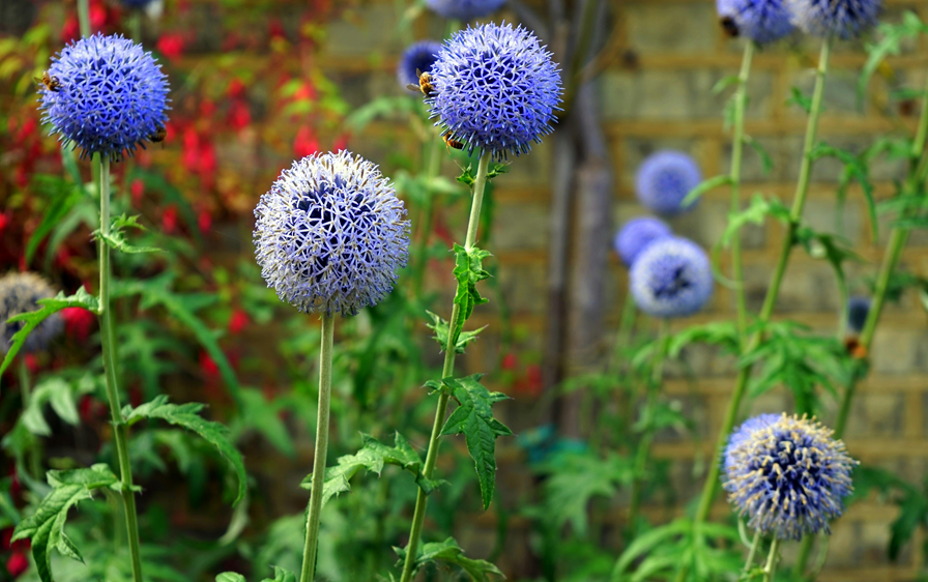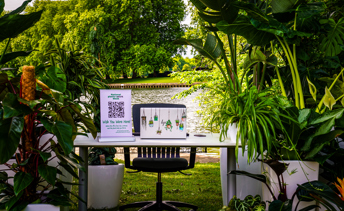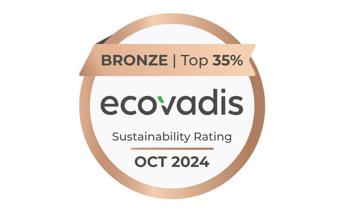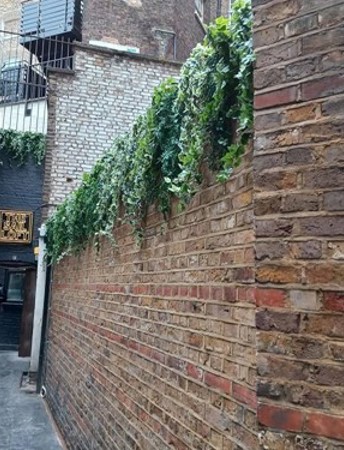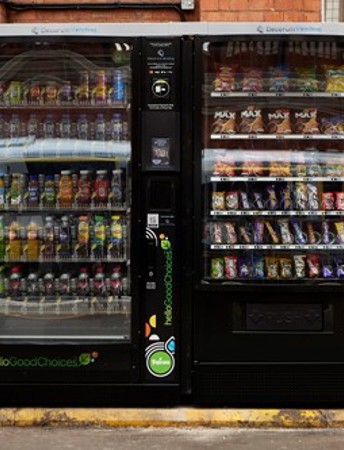Bees’ endangered status often gets little sympathy thanks to their bad reputation due to the sting at the end of their tail!
However, as one of the most effective pollinators on Earth, they bring a lot of value to our lives. Sadly, this may not be for long as the bee population is disappearing at a frightening rate, prompting us to all make an effort to bring back the bees.
Climate change, rapid development of rural areas, UK pollution statistics, intensive farming and overuse of pesticides… there are a number of things that are causing bee populations to decline both in the UK and across the wider world. Unfortunately, this is something that has been happening for a number of years. Statistics to discover are bees endangered show that a third of Britain’s bee population has disappeared over the past decade, and that 24% of Europe’s bumblebees are at threat of extinction. Further, across the pond in the US, the number of bee colonies per hectare has also declined by 90% since 1962. These are scary statistics that show we need to take action to save the bees before it’s too late.
Though declining bee populations is a serious problem across the world, this is something that the UK is becoming increasingly worried about. According to Friends of the Earth, 35 of the UK’s bee species face serious threats that are putting them at risk of becoming extinct. These concerns have led to the issue being debated in Parliament to devise The National Pollinator Strategy in 2014. This aims to raise awareness of the issue of declining bees and other vital pollinators. It also supports organisations and farmers to prevent this loss and promote how to save the bees.
You may not think that declining bee populations is a big issue but if they were to disappear, this would have a detrimental impact on our lives. This ranges from food production, to diversity of the UK’s plant and animal species. This means that much of the country’s beauty will be lost with the bees. With this in mind, we should all be thinking: What is being done to save the bees?
Why Are Bees Endangered?
As Friends of the Earth explains, there are various reasons why bee populations are declining at a rapid rate. Unfortunately, many of these things are due to human activity doing things like putting pesticides and bees together. This is why everyone, from whole businesses to individual consumers, should be striving to save the bees.
Climate change
Shifting seasons and unexpected weather conditions due to global warming can disrupt bees’ nesting behaviour. It may be affecting plants that bees rely on for food, encouraging them to bloom at a different time from when the bees are typically active.
Pollution
Current air pollution statistics point to the fact that our environment is not as welcoming for the bee population as it once was.
Intensive farming
Modern intensive farming methods are causing the loss of natural habitats, such as flower meadows, hedgerows, trees, ponds and water meadows. Such habitats are vital for boosting pollination. They also offer a home for natural predators that eat pests.
Rapid land development
Urban development, such as the building of houses and commercial buildings is also contributing to a loss of natural habitats, like wildflower meadows. These are relied on by the bee population and other pollinators for survival.
Pesticide use – pesticides and bees don’t go well together
Heavy use of non-organic pesticides has been found to affect honeybees by impairing their ability to navigate and reproduce. Neonicotinoids are a particularly harmful group of pesticides killing bees as they can affect their nervous systems.
Pests and diseases
There are a number of pests and diseases that can damage the health of both honeybees and wild bumblebees. These include fungal diseases and the varroa mite that attaches itself to a honeybee, transmits disease and saps its strength.
Why Are Bees Important?
Mainly, bees help to ensure we eat a healthy, varied diet, with a number of plants we consume relying on pollination from them and fellow pollinators. These include butterflies, hummingbirds and wasps. As well as the obvious foods (honey), without these pollinators, we wouldn’t have access to fruits, such as bananas, apples, melons, grapes, strawberries and raspberries, and vegetables, such as onions, cabbage and broccoli. Unless we save the bees, we could also be without almonds, vanilla, tea plants, and even chocolate and coffee!
As is outlined in The National Pollinator Strategy, a lack of bees and pollinators would seriously damage our £100bn food industry, making many of these foods more difficult and expensive to grow with or without organic pesticides. Additionally, our countryside and other natural habitats would also be far less interesting if the bee population were to disappear. According to Friends of the Earth, bees also pollinate around 80% of wildflowers in Europe which would all be put at risk if we don’t figure out how to save the bees.
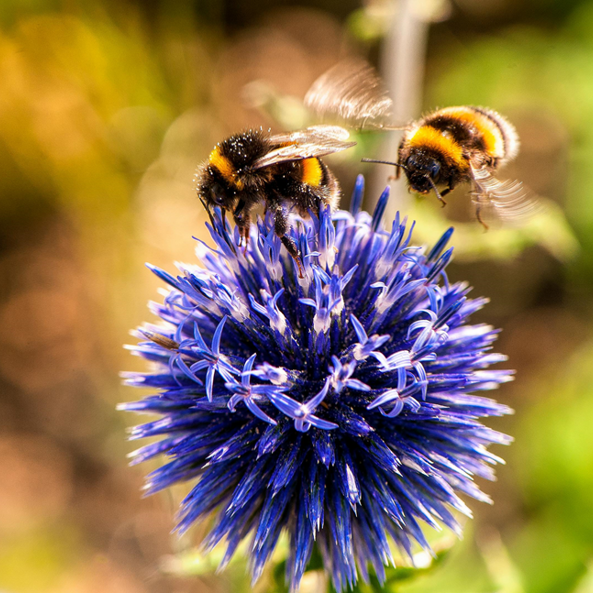
How Can I Help Save The Bees?
What is being done to save the bees and how can you help? There are many save the bees projects and initiatives, both voluntary and enforced by law, that you can support on a personal or business level. We’ve listed some of what has already been done and what we can do to save the bees, here:
The UK organisation, Friends of the Earthhas been trying to stop pesticides killing bees by campaigning for a ban on neonicotinoids (neonics), in favour of organic pesticides for a number of years due to the harm this pesticide causes to bees’ nervous systems. Fortunately, in 2018, The European Union (EU) voted to ban the outdoor use of 3 pesticides killing bees. This follows an earlier report published by the European Food Safety Authority (Efsa) which concluded that “most uses of neonicotinoid pesticides represent a risk to wild bees and honeybees”, drastically affecting the bee population. Additionally, a petition from campaign group Avvaz, calling for neonics to be banned in the EU, received support from nearly 5 million signatures from people on a quest to stop pesticides killing bees.
In 2016, General Mills (the maker of Cheerios and their Honey Nut variety) launched a ‘Bring Back The Bees’ campaignto raise awareness of dwindling bee populations across the world. They removed Buzz the Bee (the mascot for Honey Nut Cheerios) from all packaging, leaving only his silhouette to highlight bees’ endangered status and enforce the message that bees could soon be extinct. As part of the campaign, customers in Canada were given seeds to plant their own wildflowers, and over 100 million seeds were distributed. With this surpassing their original goal of 35 million seeds, the campaign was extended to the US where bee population is also suffering. It was also brought back in 2017, and again in 2018.
Similar to the Cheerios, ‘Bring Back The Bees’ campaign, Friends of the Earth’s save the bees project provides UK residents with wildflower seeds to plant as part of their Bee Saver Kits. These kits require a minimum donation of £5 (which goes to the Friends of the Earth Charitable Trust), and include a garden planner and bee spotter guide alongside your wildflower seeds. These will enable you to bring back the bees to your garden no matter the time of year and identify the new bees that start visiting your garden! Remember that pesticides and bees are not friends and you should use an organic pesticide. Friends of the Earth are also helping to save the bees by educating people on the issue, teaching them why are bees important and working with bee-friendly farmers to show that crops can be grown without insecticides, or at least with the use of organic pesticides only.
With honey being a key ingredient in their natural skincare products, it’s no surprise that Burt’s Bees has been doing various things over the years to show what can we do to save the bees save the bees. Just some of these actions and initiatives include planting 5,000 wildflower seeds for every limited edition lip balmsold and encouraging people to adopt a beehive through the British Beekeepers Association in order to bring back the bees. Notably, in 2017, they also introduced a #SelflessSelfie campaign. For every photo that used the photobooth on their website and was shared on Instagram, Burt’s Bees planted 5,000 wildflower seeds.
What Can Your Business Do To Help The Bees?
There are many things you can do as an individual or through a team or business to save the bees, such as learning why are bees important, ordering a Bee Saver Kit from Friends of the Earth, contributing to lower UK pollution statistics, adopting a bee or beehive, or choosing to purchase products and produce from bee-friendly brands that use only organic pesticides. However, the first place that any home or business can start to help the bee population (if possible) is through its building’s exterior spaces…
- Plant greenery that encourages bees – With many of the initiatives around saving the bees endangered status involving wildflower seeds, you should plant these and other bee-friendly plants in your grounds or garden to encourage them to visit, feed and pollinate. Wildflowers that bees love include Cowslip, Yarrow, Wood forget-me-not and Viper’s bugloss. Some other examples of greenery to incorporate into your planting for bees are Honeysuckle, Pussy Willow, Abelia (‘bee bush’), Lavender, Crocus and Perennial wallflower.
Your efforts to bring back the bees will also need places for these hard-working pollinators to hide and take shelter, so you should be adding height to your flowerbeds and borders with plenty of trees and shrubs. Hanging baskets are also great for encouraging the bee population as the variety of plants and colours will attract bees to your grounds.
- Reduce pesticide use – Although pesticides killing bees, such as neonicotinoids, are currently banned in the UK due to the EU vote, things could change now the country has left the European Union and reviews its policies. With there being evidence to support the fact that these and other pesticides harm bees’ health (along with herbicides), and much information discussing why are bees important, you should use organic pesticides, or no pesticides at all wherever possible.
As an example, weeds can be dug out of the ground or simply pulled out by hand in smaller areas such as flowerbeds and borders. Aphids (greenflies, blackflies and plant lice that that stunt plant and flower growth) can also be pulled from leaves with gloved hands. The bee population will thank you for your hard work. Both The RHS and Pesticide Action Network UK list some great alternatives to chemical weed and pest controls.

At phs Greenleaf, we can help you create beautiful exterior planting displays that will help you be part of what is being done to save the bees while giving your customers the best first impression of your business, Contact us today to find out more.

























